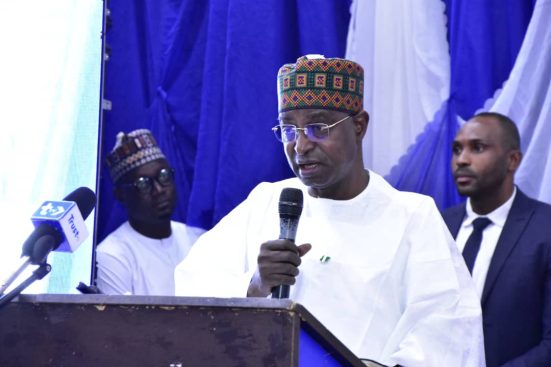As Nigeria marks the 2025 World Milk Day, the federal government has announced plans to cut the country’s over $1.5 billion annual dairy import bill and boost local milk production.
Speaking during a press briefing in Abuja on Saturday, the minister of Livestock Development, Idi Mukhtar Maiha, said the government plans to double Nigeria’s annual milk output from 600,000 metric tonnes to 1.2 million metric tonnes within the next five years.
This year’s celebration is the first since the creation of the Federal Ministry of Livestock Development by President Bola Ahmed Tinubu in July 2024, and the minister said the milestone reflects a growing commitment to revamp the livestock sector.
“We consume approximately 1.7 million metric tonnes of milk annually, yet we produce only about 35 percent of our national demand. The rest, worth over $1.5 billion, is imported—mostly in powdered form,” Maiha said.
He noted that Nigeria’s average milk consumption stands at just 8.7 litres per person per year, far below the World Health Organization’s recommended 210 litres and even the African average of 40 litres.
To tackle this gap, the minister outlined ongoing efforts under the National Livestock Growth Acceleration Strategy, which focuses on 10 strategic pillars including livestock value chain development, breed improvement, animal health, access to finance, pasture development, and youth and women empowerment.
Maiha said the ministry has already recorded some milestones, such as registering eight pasture species—“a first in 48 years”—and developing a national plan for animal genetic resources, in partnership with the FAO.
“Our indigenous cattle breeds produce 1–2 litres of milk daily, compared to over 20 litres from exotic breeds under proper management. We must invest in improved genetics and health systems to close this gap,” he added.
The minister also highlighted investments in animal health, including an expansion of vaccine production at the National Veterinary Research Institute (NVRI) from 120 million to 850 million doses annually. A solar-powered vaccine storage facility with a 40 million-dose capacity has also been commissioned in Sheda, Abuja.
In addition to supporting smallholder farmers, Maiha said the ministry is partnering with large dairy firms like Nestlé and Arla to scale up local production.
He cited the Nestlé-backed Dairy Training Centre in Paikon Kore, Abuja, and Arla’s high-tech dairy farm in Damau, Kaduna State, as examples of successful private-sector collaborations.
“Arla’s Damau farm is one of the most advanced in Africa, with over 200 imported Holstein cows. Less than two years since the first heifer calved, we’re seeing evidence that high-yield breeds can thrive in Nigeria’s climate,” he said.
He also lauded the Ekiti State Government and Promasidor for revitalizing the Ikun Dairy Farm, now producing 10,000 litres of milk daily from over 500 exotic cows on 400 hectares of pasture.
Maiha announced that plans are underway to convene the first National Council on Livestock Development before the end of the year. The council, he said, will serve as the apex platform for harmonizing livestock policies across federal and state levels.
He thanked members of the press for their role in spotlighting livestock development, describing the media as “critical partners” in telling Nigeria’s dairy transformation story.
“We urge you to continue engaging the public constructively. The success of this Ministry’s vision depends, in part, on how well we tell our story—and we need you to help us tell it boldly and accurately,” Maiha said.



